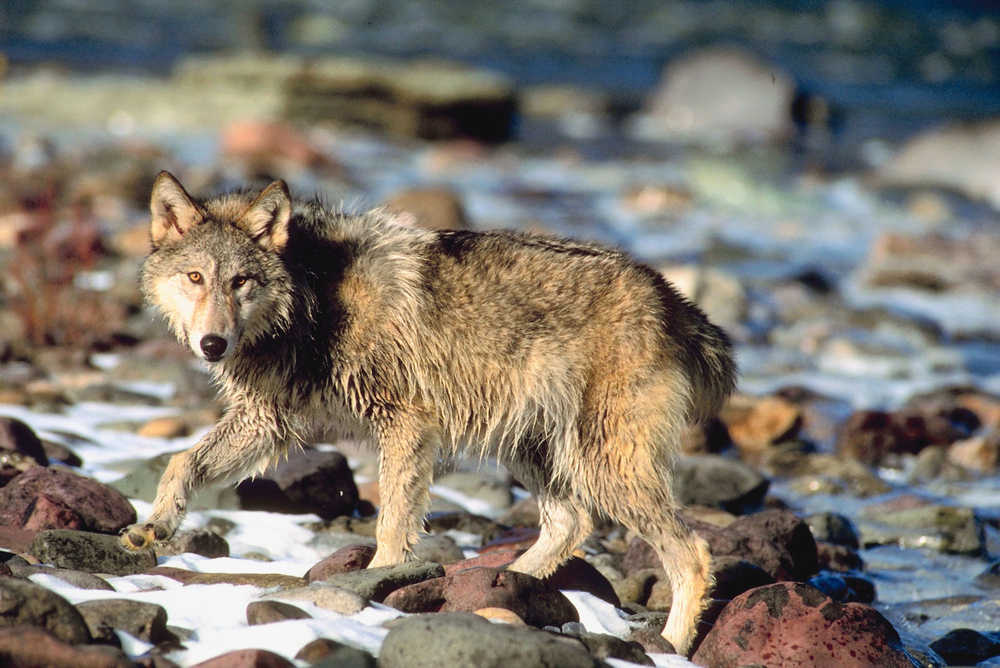The Alaska Department of Fish and Game has closed wolf hunting and trapping on Douglas Island after three animals were killed by harvesters.
That might come as a surprise to area residents, since wolves aren’t exactly common on the island.
“We haven’t had a population on Douglas for a little while,” said Stephanie Sell, the area management biologist for the Alaska Department of Fish and Game.
That started to change a few years ago.
“We started getting sightings in 2012,” Sell said.
ADF&G doesn’t perform population studies on Douglas Island wolves, so much of its information comes from hunters, hikers, and others who see them in the wild.
ADF&G trail cameras have confirmed five unique animals, but Sell has heard accounts of 20 or more. She’s inclined to think there aren’t that many, but she thinks there are more than have been captured by cameras — upwards of 10, she said.
“That’s a pack that’s moving across the whole entire island,” she said.
Wolves can move freely between Douglas and the mainland via the Mendenhall Wetlands, which Sell described as a “superhighway for wildlife in general.”
Wolves and coyotes are known to use the wetlands, particularly at night.
It isn’t clear whether the three animals killed by trappers and hunters were among the ones caught by trail camera.
Wolves have a contentious history on Douglas Island. In 2002, when seven were trapped there, it was the first pack in more than 20 years on the island.
After those wolves were killed, a group called Voices for Douglas Island Wildlife asked the Alaska Board of Game to ban wolf hunting and trapping there.
As a compromise with hunters, the Game Board agreed to protect wolves as long as the island’s deer population — the principal target of hunters — remained stable.
The Game Board eventually approved a “Douglas Island Management Area” covering the island. In that area, wolf hunting is limited, particularly when deer populations are high.
The closure of hunting and trapping on Douglas will extend through Aug. 1, when the 2017 hunting season opens. The 2017-2018 trapping season will open Dec. 1.

